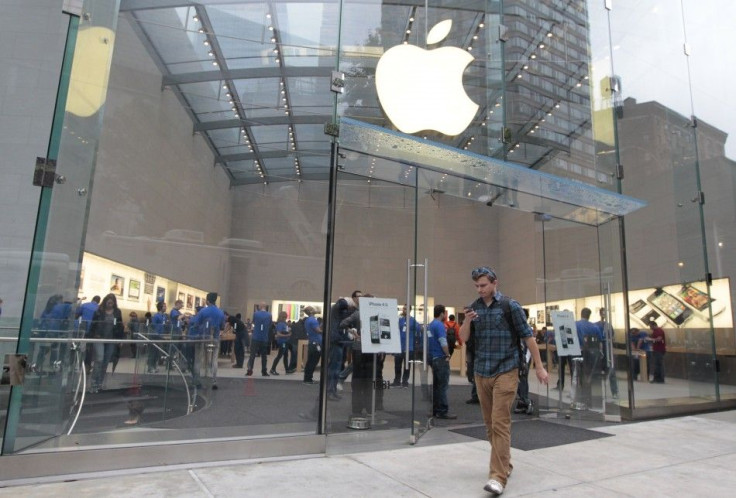Apple And Comcast May Be Teaming Up To Bring Better Quality To Content, But Will It Kill Net Neutrality?

Apple Inc. (AAPL:NASDAQ), the world's most valuable company, and Comcast Corp. (CMCSA:NASDAQ), the largest domestic Internet service provider (ISP), are reportedly in discussions to provide a tit-for-tat deal that could benefit both companies but pose a serious threat to Net neutrality.
In the rumored deal, Apple TV's streaming services would get preferential treatment relative to its competitors on Comcast's cable network, bypassing network congestion. In return, Comcast would be able to use Apple TV to offer Live TV and on-demand services via a subscription plan, the Wall Street Journal reported on Sunday. Neither company confirmed that the talks are underway.
In the short run, an Apple-Comcast deal could benefit consumers who want the cable provider's content but don’t want to pay for multiple set-top boxes. It effectively gives Apple TV owners access to Comcast's multitude of services, which means that Apple is expanding their content. And more choice is usually a good thing for consumers. For its part, Comcast would be happy with this subscription model as it would bring in revenue from customers who have moved away from traditional cable television models.
However, what may seem like a good thing to the two companies could end up being detrimental to the industry as a whole. Apparently, the clincher to the deal is that Apple’s “new TV services traffic [will] be separated from public Internet traffic over the ‘last mile’ -- the portion of a cable operator's pipes that connect to customers' homes,” the journal said. This preferential treatment is reminiscent of the Netflix, Inc. (NFLX:NASDAQ) deal with Comcast that was concluded in February and has many advocates crying foul of the Net neutrality rules that Comcast agreed to in 2011 as part of the Comcast-NBC Universal Media LLC merger.
To get governmental approval for the merger, Comcast had previously agreed to the Open Internet Order rules, “even if the rules were modified by the courts,” said David L. Cohen, Comcast’s executive vice president. In January, those same rules were in fact changed by the courts, overturned in a 2-1 decision in Verizon Communications Inc.'s (NYSE:VZ) case against the Federal Communications Commission, which argued that ISPs did not have to treat all traffic equally.
This decision prompted ISPs to begin discussions with Netflix, as the on-demand video giant accounts for almost a third of all broadband traffic. Comcast, despite Cohen’s statement of remaining neutral, was the first ISP to broker a deal with Netflix, to ensure that its traffic remains available to its customers over Comcast's massive network. Verizon and AT&T both said they are in talks with Netflix currently and believe that a similar deal will be signed soon.
Netflix CEO Reed Hastings has spoken out against these types of deals, which he says he is "reluctantly" signing.
“Some major ISPs, like Cablevision, already practice strong net neutrality, and for their broadband subscribers, the quality of Netflix and other streaming services is outstanding. But on other big ISPs, due to a lack of sufficient interconnectivity, Netflix performance has been constrained, subjecting consumers who pay a lot of money for high-speed Internet to high buffering rates, long wait times and poor video quality,” Hastings wrote in a blog post.
Netflix tracks the average speed that multiple ISPs offer here. Hastings noted that Comcast’s traffic was degrading since October, but it rebounded in February after the deal was signed. Comcast’s so-called "double dipping," or charging both customers and content providers, is setting a precedent that Apple is possibly adhering to, which is seemingly against what Cohen and Comcast agreed to in 2011. However, as the WSJ pointed out, Apple’s content would be considered a “managed service,” exempting the special treatment from the net neutrality rules, a legal loophole that lawyers live for.
Ultimately, the deal may be in the best interest for customers, at least from Apple’s perspective. “Apple's goal would be to ensure users don't see hiccups in the service or buffering that can take place while streaming Web video, making its video the same quality as Comcast's TV transmissions to normal set-top boxes,” the WSJ reported. Whether or not the FCC will see it that way is a another question.
© Copyright IBTimes 2024. All rights reserved.




















